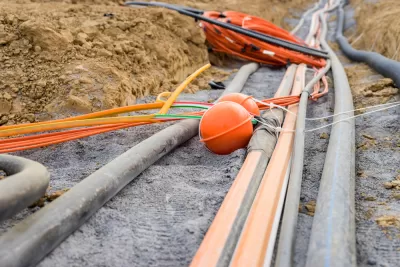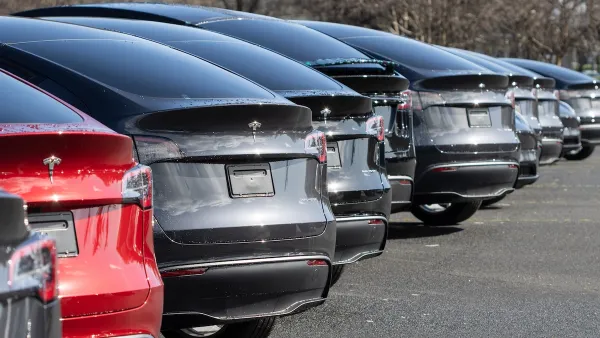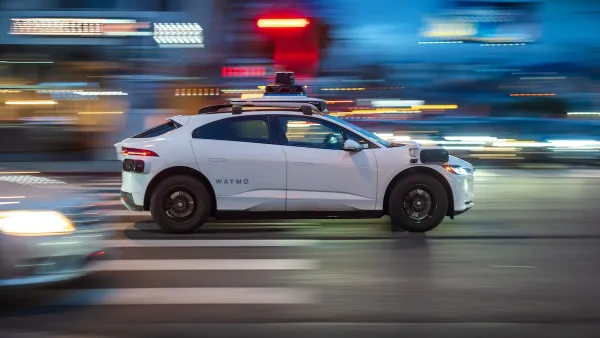The future of mobility depends on having a comprehensive, nationwide broadband network capable of supporting new transportation technologies and regulatory needs.

An article by Rudy Salo highlights the importance of broadband infrastructure, which will receive $65 billion in funding from the Infrastructure Investment and Jobs Act. Far from just home internet speeds, Salo writes that broadband quality affects many aspects of modern life, including transportation. "Better broadband capabilities affect highway operations, including through applications centrally managing signal systems, variable speed limits, and cameras that improve incident response and timing, among others."
According to Salo, broadband is also required to connect autonomous vehicles to each other and the road they're driving on, which calls for a robust system of infrastructure to ensure seamless communication and keep passengers and pedestrians safe in the age of self-driving cars.
Salo also highlights the privacy concerns inherent in the massive amounts of data that users will—and already do—provide to the tech companies that power their phones, cars, and smart home gadgets, cautioning against data monopolies. "If left unregulated, there is danger that control over and use of user data by a combination of big auto and big tech could lead to monopolization and abuse. U.S. consumer-commuters could be at the mercy of conglomerates that abuse their power and limit consumer-commuters to minimal choices or use the data they control to manipulate choices."
FULL STORY: Why The Future Of Transportation Needs A National Investment In Broadband Infrastructure

Planetizen Federal Action Tracker
A weekly monitor of how Trump’s orders and actions are impacting planners and planning in America.

Maui's Vacation Rental Debate Turns Ugly
Verbal attacks, misinformation campaigns and fistfights plague a high-stakes debate to convert thousands of vacation rentals into long-term housing.

Restaurant Patios Were a Pandemic Win — Why Were They so Hard to Keep?
Social distancing requirements and changes in travel patterns prompted cities to pilot new uses for street and sidewalk space. Then it got complicated.

In California Battle of Housing vs. Environment, Housing Just Won
A new state law significantly limits the power of CEQA, an environmental review law that served as a powerful tool for blocking new development.

Boulder Eliminates Parking Minimums Citywide
Officials estimate the cost of building a single underground parking space at up to $100,000.

Orange County, Florida Adopts Largest US “Sprawl Repair” Code
The ‘Orange Code’ seeks to rectify decades of sprawl-inducing, car-oriented development.
Urban Design for Planners 1: Software Tools
This six-course series explores essential urban design concepts using open source software and equips planners with the tools they need to participate fully in the urban design process.
Planning for Universal Design
Learn the tools for implementing Universal Design in planning regulations.
Heyer Gruel & Associates PA
JM Goldson LLC
Custer County Colorado
City of Camden Redevelopment Agency
City of Astoria
Transportation Research & Education Center (TREC) at Portland State University
Jefferson Parish Government
Camden Redevelopment Agency
City of Claremont





























